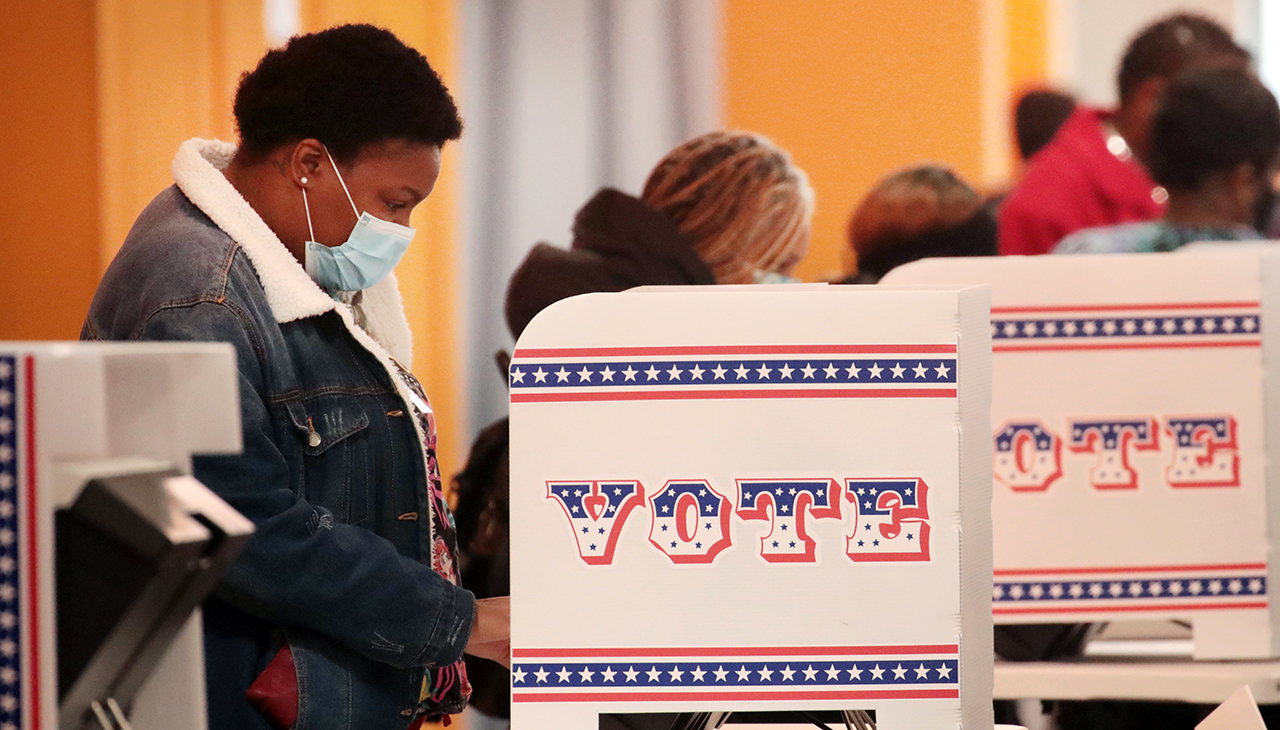
The latest voter suppression efforts in Texas and Georgia will face a fight for democracy
Voter suppression efforts in Texas and Georgia are escalating.
Republicans in the Texas legislature are considering a barrage of new bills to restrict voter access based on nonexistent voter fraud. But this isn’t the first time the Texas GOP has tried to suppress Black and Brown votes, and additionally, it's not the only place this is happening in the United States.
The 2020 elections saw major upsets to the Republican party, first in Arizona, and culminating in Georgia’s presidential and Senatorial flip to blue.
Texas saw record voter turnout, highlighted by never-before-seen early voting by communities of color, despite efforts even then to restrict access to the polls through several outlets.
But now, months after the election, GOP legislators are reeling with a slew of bills aimed at restricting voting rights, with the biggest affronts being in Georgia and Texas.
Georgia has introduced a legislation to eliminate early in-person voting on Sundays and to eliminate no-excuse absentee voting for younger voting. This, following record-breaking voter turnout in the 2020 Presidential election that was met with months-long scrutiny by the previous administration and fellow GOP members, who challenged the voter outcome with multiple lawsuits and conspiracy theories that were all shot down.
“It is a redux of Jim Crow in a suit and tie. We know that the only thing that precipitated these changes, it’s not that there was the question of security,” Stacey Abrams called it on March 14 on CNN.
She is a former senior state legislator, gubernatorial candidate, and one of the greatest current mobilizing forces in the nation.
“In fact, the secretary of state and the governor went to great pains to assure America that Georgia’s elections were secure. And so the only connection that we can find is that more people of color voted, and it changed the outcome of elections in a direction that Republicans do not like,” Abrams continued.
She said that instead of celebrating greater turnout in participation, Georgia’s leadership response is to eliminate access for voting for primarily communities of color.
It’s a similar story to what is happening in Texas, where legislators are relying on the myth of voter fraud to develop and push restrictive bills.
GOP lawmakers recently introduced two dozen bills that would make it harder to vote in the lone star state.
Among other measures, the bills would bar counties from sending absentee ballot request forms to people who did not ask for them, limit counties' authority to expand voting hours, and make it easier to challenge signatures on absentee ballots.
Bill drafters and sponsors have openly identified Harris County — Texas’ largest and one with the highest Latino populations in the nation — to be the target of much of their legislative efforts. Democrats have notably made major strides in the county that used to be more firmly conservative.
With a Hispanic population of over 1.7 million, Harris County trails only Los Angeles County with the largest Hispanic population in the nation, meaning a staggering number of Latino voters will find it increasingly difficult to cast their vote should the latest suppression efforts prevail.
These are weapons for voter suppression disguised as election integrity efforts https://t.co/sqAVMMUnOz
— Lina Hidalgo (@LinaHidalgoTX) March 15, 2021
For instance, Texas Gov. Greg Abbot issued an order in October designating that each of the state’s counties could only provide one mail-in drop-off location for the November election, regardless of size or population.
RELATED CONTENT
The GOP saw major opposition from Harris County leaders like Judge Lina Hidalgo, who was one of the major players in fighting for voting access.
In the end they prevailed, but legislators are still pushing restrictions.
“They look at the numbers and they see whatever percentages have increased, especially among voters of color. That’s where they try to make it harder to vote,” Cristina Tzintzún Ramirez with Jolt Action, one of the largest voter advocacy groups in Texas told AL DÍA.
“So more voters of color voted early this election, so now they want to make it harder to vote earlier. They want to reduce hours. They saw increased numbers of people doing drive through voting, so now they want to reduce that,” she continued.
Texas’ political landscape has been changing. In the 2020 census, Hispanics and Latinos of any race made up nearly 40% of the state’s population. Now over ten years ahead, that number is projected to have grown dramatically, with reports already reporting an increase of 2 million statewide by 2020.
“Texas has had historically one of the lowest voter turnouts in the country, and that started to change. Instead of elected officials welcoming the idea that Texas and Democracy is becoming stronger, that Democracy only works when people participate, they are becoming fearful and reacting to trying to suppress people’s right to vote,” Tzintzún Ramirez continued.
She also noted that though there is a barrage of new voter suppression efforts, rallies to meet the restrictive bills are currently in the works in both the Texas House and in the U.S. Congress.
“There are also a host of bills in the legislature that have been introduced that would expand voting rights in the State. Right now Republicans hold power in the legislature which are probably going to end up in the courts and there will be a battle,” Tzintzún Ramirez continued.
On a national level, the House on March 3 passed a landmark bill — the For the People Act — intended to reform voting procedures, increase voter participation and require states to assign independent commissions with the task of redrawing congressional districts to guard against partisan manipulation.
Additionally the John Lewis Voting Rights Advancement Act would help protect voters from racial discrimination and vote suppression by restoring and strengthening the protections of the Voting Rights Act
And this is without mention of the lingering battle on the filibuster.











LEAVE A COMMENT: